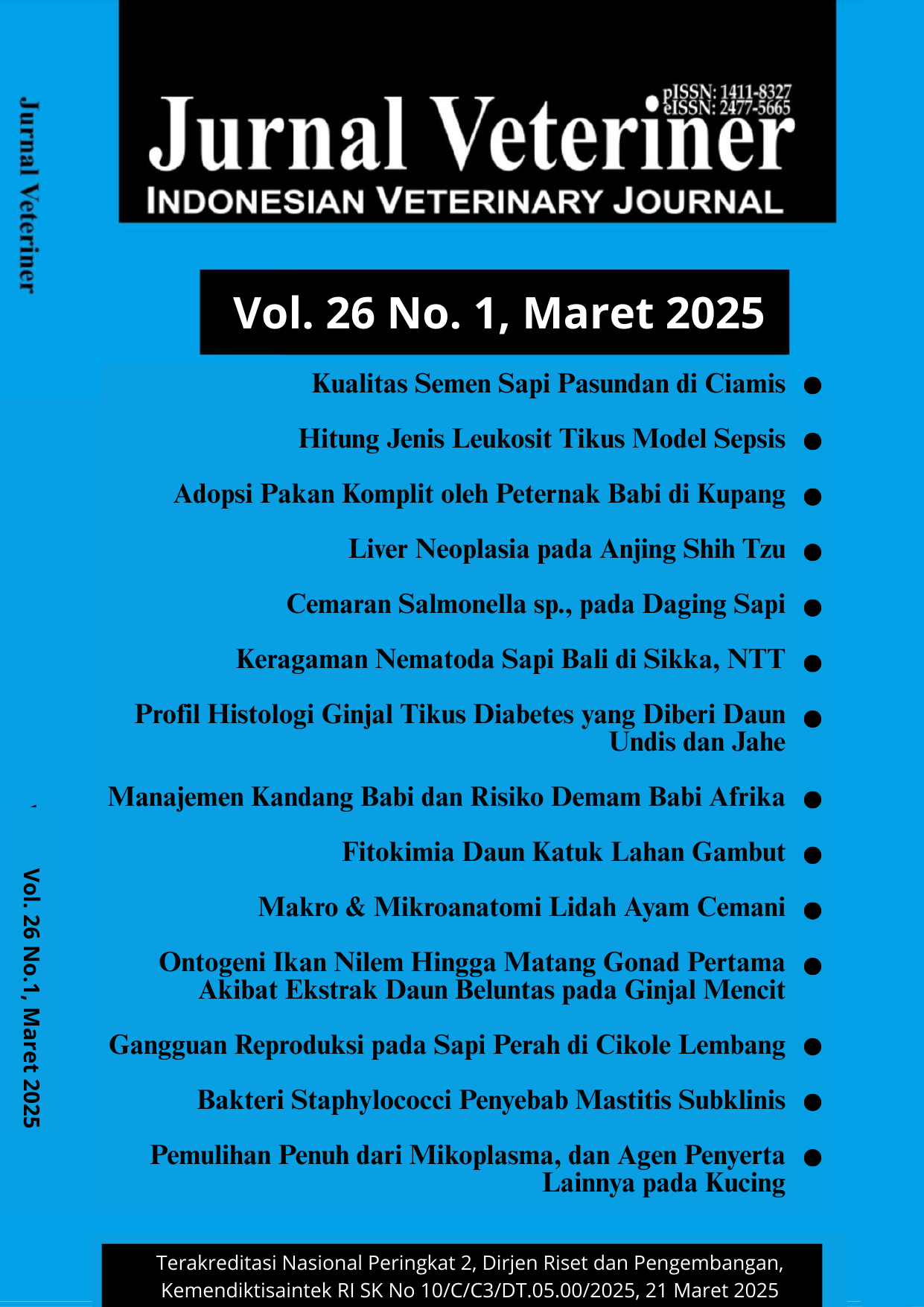Histological Profile of Kidney Tissues in Diabetic Model Rats Treated with Instant Granule of Cajanus cajan Leaves and Zingiber officinale
Abstract
Diabetes mellitus is a chronic metabolic disorder characterized by high blood glucose levels, which can impair kidney function. This study was aimed to analyze the histological profile of kidney tissue in diabetic model rats treated with instant granules of Cajanus cajan leaves and Zingiber officinale. A total of 25 male Sprague Dawley rats were utilized and separated into five groups; negative control (NC), diabetes or positive control (PC), diabetes mellitus (DM) + metformin at 150 mg/kg BW (MET), DM + instant granules at 300 mg/kg BW (G1), and DM + instant granules at 150 mg/kg BW (G2). The condition of DM was obtained by single streptozotocin induction (35 mg/kg BW). The results indicate that the administration of instant granules significantly ameliorate the histological profile of kidneys in diabetic model rats, including an increase in the glomerulus to Bowman’s capsule ratio, as well as a decrease in the number of necrotic tubular cells and the tubular dilatation index (P<0.05). The administration of instant granules made from C. cajan leaves and Z. officinale significantly reduced microstructural damage to kidney tissue in diabetic model rats. A dose of 150 mg/kg BW showed the most optimal results in preserving renal microstructure.



















